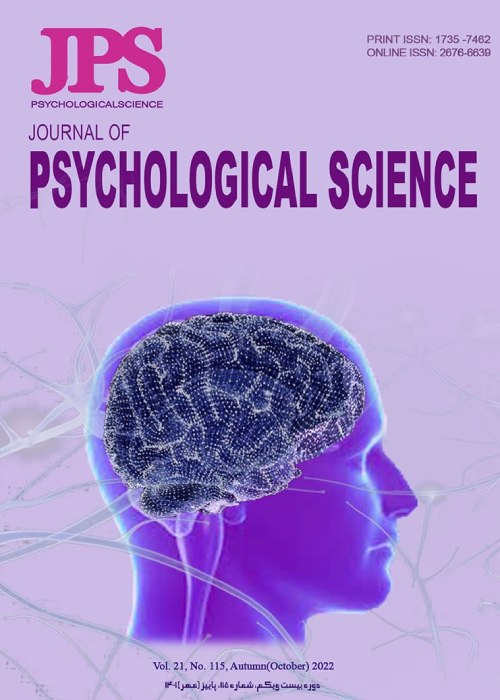Psychometric properties of the guilt and shame experience scale in adolescents in Tehran
Shame and guilt as negative and maladaptive emotions are associated with psychological problems in adolescents, including depression and suicide, social anxiety, bipolar disorder, and low level of self-compassion. However, despite the importance of these emotions in adolescents, there is a research gap in investigating the psychometric properties of a valid scale to measure shame and guilt in Iranian adolescents.
This study aimed to investigate the psychometric properties of the Persian version of the Guilt and Shame Experience Scale (GSES; Malinakova et al., 2019) in adolescents in Tehran.
The present research is applied in terms of purpose, survey in terms of type of data collection, and testing in terms of methodology, which was conducted in the form of a correlational research design. The present study sample was 2291 adolescents aged 12 to 18 years selected through multi-stage cluster random sampling. The confirmatory factor analysis method was used to determine the construct validity, and the multi-group analytical method was used to test the invariance of the scale concerning gender.
The confirmatory factor analysis results confirmed the existence of two factors of shame and guilt and indicated a good fit of the data in the groups of girls and boys. The multi-group analysis also showed the invariance of path coefficients and residuals in both groups (P> 0.05). The scale’s reliability was confirmed using Cronbach’s alpha, MacDonald omega, and composite reliability (α, ω, CR ≥ 0.7). The results indicated that the GSES has an adequate face, content, construct, divergent and discriminant validity. Examination of demographic variables showed an increase in feelings of shame and guilt with age (P< 0.01).
The Persian version of the Shame and Guilt Experience Scale has desirable psychometric properties, and is a simple, brief and reliable tool for assessing the emotions of shame and guilt in Iranian adolescents.
-
formulate a psychological self-care educational model and its effectiveness on self-compassion of vulnerable teenagers in Tehran
Tooba Orang, *, Seyedeh Monavar Yazdi, Aliakbar Samari
Journal of New Approach to Children's Education, -
Psychometric properties of the Ethical Values Assessment Questionnaire (EVA) in Iranian students
Fateme Asl Dehghan, *
Educational Measurement, -
The relationship between the use of virtual space and emotional well-being, the moderating role of use virtual space and gender in children of Sanandaj
Fatemeh Emami*, Abbas Abdollahi, Simin Hoseinian
Educational Research, -
The Relationship Between Maternal Distress During Pregnancy and Infants' Temperament
Faezeh Sadat Hosseini, Hamid Rezaeian *
Middle Eastern Journal of Disability Studies,




